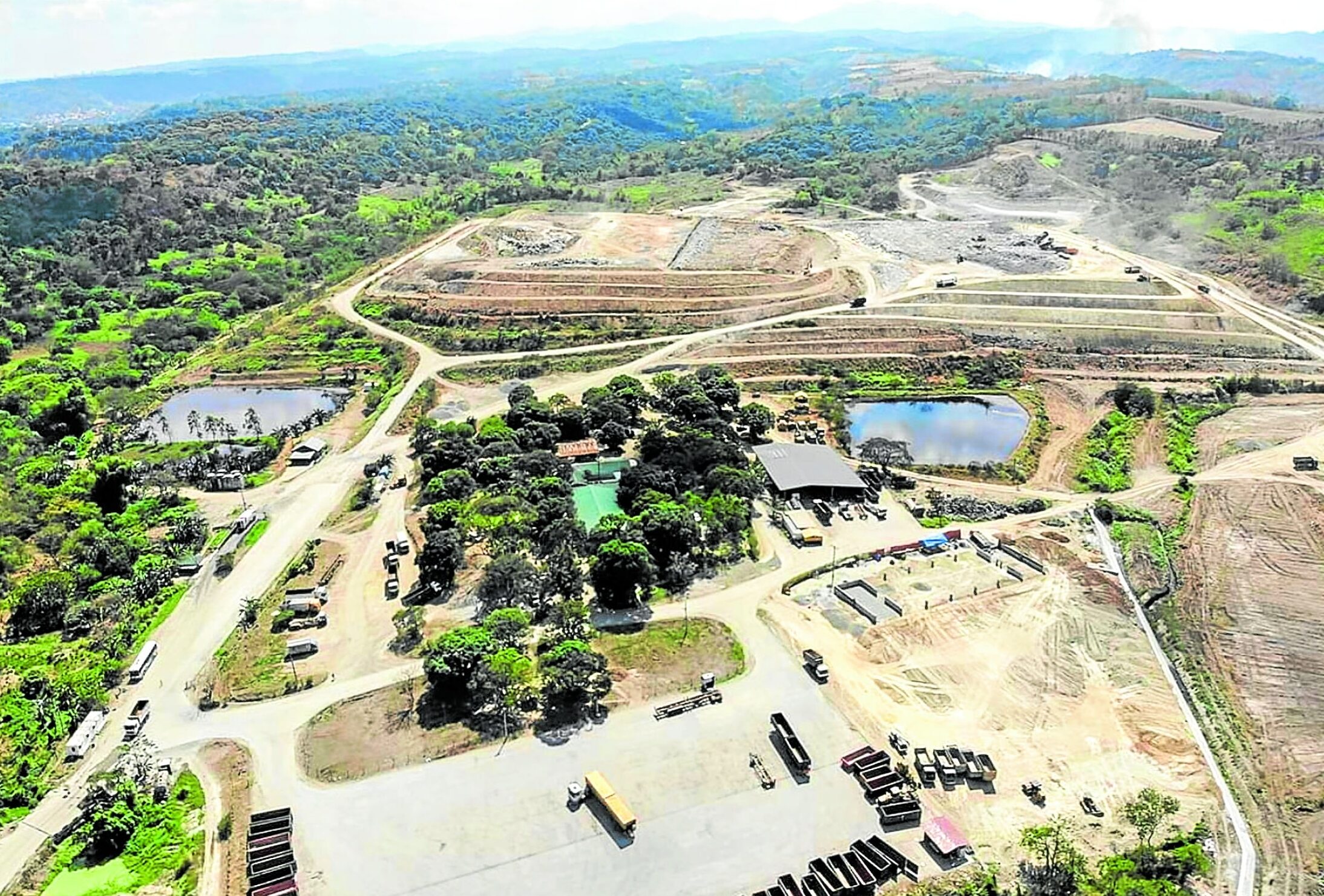
VITAL FACILITY Local governments and businesses in Central Luzon and some areas in North Luzon have started looking for alternative dumps for their trash due to the impending closure of Kalangitan Sanitary Landfill at the New Clark City in Capas, Tarlac. The Metro Clark Waste Management Corp. (MCWMC), which operates the 100-hectare facility, has gone to court to fight for the validity of its contract. —Photos courtesy of MCWMC
CLARK FREEPORT ZONE, Philippines — The Clark Development Corp. (CDC) is shutting down the operation of the 100-hectare sanitary landfill within the New Clark City in Capas, Tarlac, on Sunday as the service contract of its operator expires that day.
“The publicly [bid] Contract for Services with the Metro Clark Waste Management Corp. (MCWMC) reads that it is valid only until Oct. 5, 2024,” the CDC said in a statement on Tuesday.
The state-owned CDC said Kalangitan Sanitary Landfill operates under a Build-Operate-Transfer (BOT) contract.
In May this year, the MCWMC filed a case at a regional trial court in Angeles City contesting the CDC and Bases Conversion and Development Authority’s (BCDA) pronouncements that its contract to operate the sanitary landfill would end on Oct. 5.
READ: BCDA to close Tarlac landfill; over 100 LGUs to lose dump access
The company stressed that its lease contract with the CDC should be valid for 50 years and renewable by another 25 years as guaranteed by Republic Act No. 7652, or the Investor’s Lease Act, and Executive Order No. 429, signed by former President Fidel V. Ramos in 1997.
The lease and service agreement between the CDC and MCWMC was signed in 1999.
MCWMC also filed charges in the Office of the Ombudsman against former BCDA chair Delfin Lorenzana, BCDA president Joshua Bingcang, CDC president Agnes Devanadera, BCDA executive vice president Gisela Kalalo and director Jacqueline Caancan of the Environmental Management Bureau.
It alleged that the said officials acted “in conspiracy with one another” to “disregard the sanctity” of the lease between CDC and MCWMC over the Kalangitan landfill, where more than 100 local governments in Central and North Luzon dump their trash.
MAINTENANCE WORK In this photo taken in January, workers roll out a sheet of protective covering on the Kalangitan Sanitary Landfill’s expanded disposal area.
Uninterrupted
The CDC said it “respects the sub judice rule; thus, it has taken a stand to refrain from commenting on issues now pending before the courts.”
For its part, the BCDA said it had yet to receive a copy of the Ombudsman case and could not comment on the complaint.
The CDC said it would ensure uninterrupted waste management within Clark by accrediting Prime Integrated Waste Solutions Pampanga Inc., located in Porac town, as the first waste service provider.
“Currently, the CDC is still processing the accreditation of additional applicants who have yet to complete the submission of their requirements, and this process will continue until Oct. 5 … Rest assured that the CDC will remain steadfast in its commitment to make Clark environmentally sustainable,” it added.
Earlier, the BCDA said that three operational facilities in Pampanga may serve as alternative dump for trash from different parts of Central Luzon.
It identified these facilities as the sanitary landfill operated by Eco Protect Management Corp., with a total capacity of 2,500 metric tons (MT) per day; the sanitary landfill of Florida Blanca Enviro Park Project Corp., with a capacity of 3,500 MT per day; and the materials recovery facility recently opened by Prime Integrated Waste Solutions Inc., with a capacity of 5,000 MT per day.
Other options
The BCDA earlier said that it is considering several options on rehabilitating the land, “noting that the sanitary landfill is potentially encroaching on the expansion areas of the developable lands adjacent to it.”
In a letter to the CDC, the BCDA stressed that MCWMC should promptly vacate and turn over all constructions and improvements within the 100-hectare area to the state-owned corporation upon the expiration of the contract.
It said there was no provision in the 25-year contract between the CDC and MCWMC for a renewal or extension.
According to the BCDA, a legal opinion of the Office of the Government Corporate Counsel, the BCDA’s statutory counsel, states that the contract between the CDC and MCWMC cannot be extended even on an ad interim basis as such extension is considered a “material deviation,” which will violate the BOT Law.